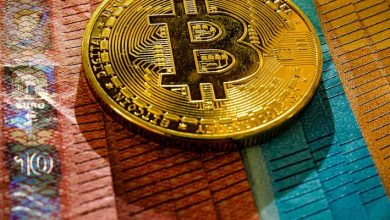The Future of DeFi Tokens

- Understanding the Rise of DeFi Tokens
- Challenges and Opportunities in the DeFi Token Space
- Regulatory Considerations for DeFi Tokens
- The Role of Decentralized Exchanges in the Future of DeFi Tokens
- Innovations Driving the Evolution of DeFi Tokens
- Investing Strategies for DeFi Tokens in a Volatile Market
Understanding the Rise of DeFi Tokens
Understanding the rise of decentralized finance (DeFi) tokens is crucial for investors looking to capitalize on this growing trend in the cryptocurrency market. DeFi tokens have gained significant traction in recent years due to their ability to provide users with financial services without the need for traditional intermediaries. This has led to a surge in interest from both retail and institutional investors, driving up the value of these tokens.
One of the key factors driving the popularity of DeFi tokens is their potential for high returns. Many DeFi projects offer staking and yield farming opportunities, allowing users to earn passive income on their cryptocurrency holdings. This has attracted a new wave of investors looking to maximize their profits in the volatile crypto market.
Another reason for the rise of DeFi tokens is the innovative technology behind them. DeFi projects are built on blockchain networks, which provide a high level of security and transparency. This has made DeFi tokens an attractive option for users looking to avoid the risks associated with centralized financial institutions.
Overall, the rise of DeFi tokens represents a shift towards a more decentralized and democratized financial system. As more investors recognize the potential of these tokens, we can expect to see continued growth in the DeFi market in the coming years.
Challenges and Opportunities in the DeFi Token Space
As the DeFi token space continues to evolve, it presents both challenges and opportunities for investors and developers alike. Understanding these dynamics is crucial for navigating this rapidly changing landscape.
One of the main challenges in the DeFi token space is the issue of security. With the rise of decentralized finance, there has been an increase in hacks and exploits targeting DeFi projects. This has raised concerns among investors about the safety of their funds. Developers are constantly working to improve security measures, but this remains an ongoing challenge.
On the other hand, the DeFi token space also offers numerous opportunities for growth and innovation. Decentralized finance has the potential to revolutionize traditional financial systems, providing greater access to financial services for people around the world. This opens up new possibilities for developers to create innovative solutions that can benefit a wide range of users.
Another opportunity in the DeFi token space is the potential for high returns on investment. Many DeFi projects have seen significant growth in a short period, offering lucrative opportunities for investors. However, it’s important to note that this high reward also comes with high risk, as the market can be volatile and unpredictable.
In conclusion, the DeFi token space is a dynamic and rapidly evolving ecosystem that presents both challenges and opportunities. By staying informed and being aware of the risks involved, investors and developers can navigate this space successfully and contribute to the growth and development of decentralized finance.
Regulatory Considerations for DeFi Tokens
When it comes to DeFi tokens, there are several regulatory considerations that need to be taken into account. It is important to understand the legal implications and compliance requirements associated with these tokens in order to avoid any potential issues in the future.
One of the key regulatory considerations for DeFi tokens is the classification of these tokens under existing regulatory frameworks. Depending on how a DeFi token is structured and used, it may fall under different regulatory categories, such as securities, commodities, or currencies. It is essential to determine the correct classification to ensure compliance with relevant laws and regulations.
Another important regulatory consideration for DeFi tokens is the potential for regulatory scrutiny and enforcement actions. As the DeFi space continues to grow and evolve, regulators around the world are paying closer attention to these tokens and the platforms that facilitate their trading. It is crucial for projects in the DeFi space to stay informed about regulatory developments and take proactive steps to address any compliance issues.
Additionally, DeFi projects need to consider the implications of anti-money laundering (AML) and know your customer (KYC) regulations. These regulations are designed to prevent financial crimes such as money laundering and terrorist financing. DeFi projects must implement robust AML and KYC procedures to ensure that they are not inadvertently facilitating illegal activities.
In conclusion, regulatory considerations are a crucial aspect of the future of DeFi tokens. By understanding and addressing these considerations, DeFi projects can navigate the regulatory landscape more effectively and build trust with regulators and users alike.
The Role of Decentralized Exchanges in the Future of DeFi Tokens
Decentralized exchanges (DEXs) play a crucial role in the future of DeFi tokens. These platforms allow users to trade cryptocurrencies directly with one another without the need for a central authority. This peer-to-peer trading model offers increased security and privacy compared to traditional exchanges.
One of the key advantages of DEXs is their ability to provide users with full control over their funds. By using smart contracts to facilitate trades, DEXs eliminate the need for users to deposit their tokens into a centralized exchange, reducing the risk of hacks and theft. This increased security is particularly important in the DeFi space, where the value locked in smart contracts can be substantial.
Furthermore, DEXs are often more efficient than centralized exchanges, with lower fees and faster transaction times. This can be especially beneficial for traders looking to capitalize on market opportunities quickly. Additionally, DEXs are accessible to anyone with an internet connection, making them an attractive option for users in regions where traditional banking services may be limited.
Innovations Driving the Evolution of DeFi Tokens
The evolution of DeFi tokens is being driven by a number of innovative developments that are reshaping the landscape of decentralized finance. These advancements are not only enhancing the functionality and utility of DeFi tokens but also expanding their use cases and potential impact on the financial industry.
One of the key innovations driving the evolution of DeFi tokens is the rise of decentralized exchanges (DEXs). These platforms allow users to trade cryptocurrencies directly with one another without the need for a centralized intermediary. This not only increases the efficiency and security of trading but also reduces the barriers to entry for new participants in the DeFi ecosystem.
Another important development is the emergence of decentralized lending and borrowing protocols. These platforms enable users to lend out their cryptocurrencies to earn interest or borrow assets by providing collateral. This opens up new opportunities for generating passive income and accessing liquidity without relying on traditional financial institutions.
Smart contract platforms like Ethereum have also played a significant role in driving the evolution of DeFi tokens. These platforms enable the creation of programmable tokens that can execute complex financial transactions automatically, without the need for intermediaries. This has paved the way for innovative DeFi applications such as automated market makers, yield farming, and decentralized insurance.
Overall, the future of DeFi tokens looks promising as these innovations continue to push the boundaries of what is possible in decentralized finance. With the ongoing development of new technologies and protocols, DeFi tokens are poised to revolutionize the way we think about and interact with the financial system.
Investing Strategies for DeFi Tokens in a Volatile Market
When it comes to investing in DeFi tokens in a volatile market, it is crucial to have a solid strategy in place to navigate the ups and downs. Here are some key strategies to consider:
- Diversification: One of the most important strategies is to diversify your portfolio across different DeFi tokens. This can help spread out risk and minimize potential losses if one token underperforms.
- Research: Conduct thorough research on the DeFi projects you are interested in investing in. Look into the team behind the project, the technology they are using, and the problem they are trying to solve. This can help you make more informed investment decisions.
- Stay Informed: Stay up to date with the latest news and developments in the DeFi space. Market sentiment can change rapidly, so it is important to stay informed to make timely decisions.
- Set Stop-Loss Orders: Consider setting stop-loss orders to automatically sell your tokens if they reach a certain price. This can help protect your investment from significant losses in case of a sudden market downturn.
- Long-Term Perspective: While it can be tempting to try and time the market, it is often more beneficial to take a long-term perspective when investing in DeFi tokens. Focus on the fundamentals of the project and its potential for long-term growth.
By following these investing strategies, you can navigate the volatile market of DeFi tokens more effectively and increase your chances of success in the long run.



